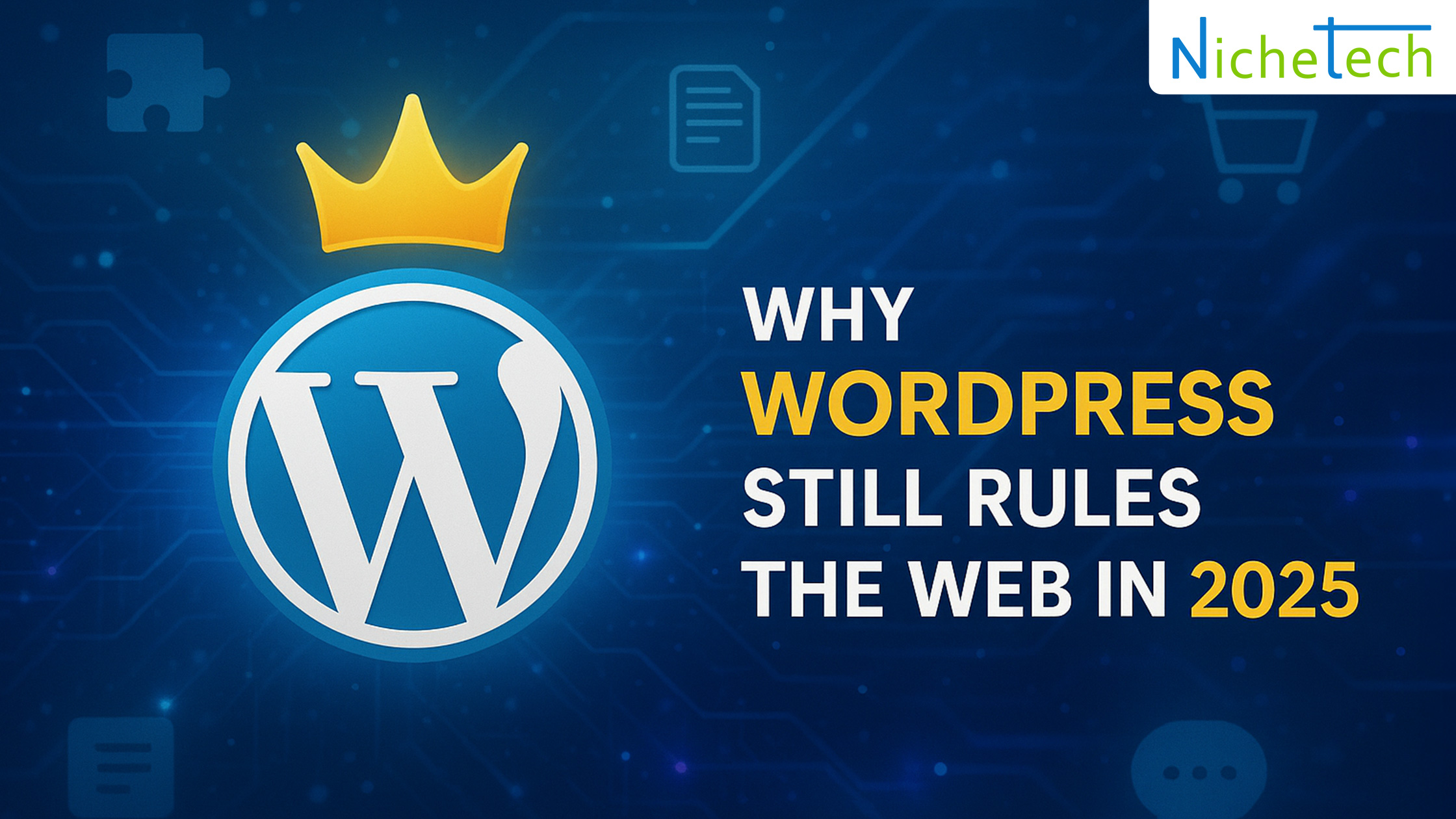As we move deeper into 2025, one platform remains a foundational pillar in the digital world: WordPress. Hosting more than 40% of all websites globally, WordPress has transformed from a simple blogging tool into a powerful, full-featured content management system (CMS) that serves everyone—from beginners and small businesses to large-scale enterprises. With an increasing need for tailored digital solutions, WordPress Web Development Services have become vital for building websites that are responsive, scalable, and packed with features. Here’s why WordPress continues to lead the web in 2025.
1. Unmatched Flexibility and Extensibility
Themes and Block Editor: The introduction of Full Site Editing and the Gutenberg block editor transformed WordPress into a truly design-driven platform. Users can build custom layouts, dynamic templates, and reusable blocks without writing a single line of code.
Plugin Ecosystem: With over 60,000 free and premium plugins, WordPress can be tailored to virtually any use case—from e-learning and membership sites to headless commerce and API-driven apps.
2. Open-Source Community Innovation
Global Collaboration: Thousands of volunteer contributors and a thriving ecosystem of agencies, freelancers, and agencies continually refine core features, security, and performance.
Rapid Release Cycle: Bi-annual major releases and regular patch updates ensure WordPress stays on the cutting edge, integrating modern web standards like React, Vue, and GraphQL.
3. Scalability and Performance
Enterprise-Grade Hosting: Managed WordPress hosts now offer auto-scaling infrastructure, edge caching, and built-in CDN integration. Even sites with millions of monthly visitors can maintain sub-second load times.
Headless and Decoupled: For projects requiring extra speed or bespoke frontend frameworks, WordPress can serve as a headless CMS—feeding content via REST API or GraphQL to custom React, Angular, or mobile apps Development.
4. Content-First Philosophy
User-Centric Editing: Whether you’re a marketer crafting blog posts or a developer integrating third-party data, the block editor provides a consistent, intuitive experience.
SEO and Accessibility: Core enhancements and plugins like Yoast SEO and WP Accessibility Checker help you optimize metadata, structure, and accessibility for every page.
5. Security and Compliance
Proactive Hardening: Ongoing partnerships with security experts, automatic plugin-dependency checks, and the Site Health tool give administrators real-time insights and one-click fixes.
Regulatory Readiness: Built-in tools simplify GDPR, CCPA, and other data-privacy compliance, while specialized plugins automate cookie banners, consent logs, and data-export requests.
6. Evolving for Modern Workflows
Headless REST/GraphQL: Content architects can use WordPress purely as a backend, delivering content to static-site generators (e.g., Hugo, Gatsby) or single-page apps.
CLI and Git-First Development: The WP-CLI tool and Composer support enable developers to adopt true DevOps pipelines, version control, and continuous integration/continuous deployment (CI/CD).
7. Cost-Effectiveness and Ownership
No Vendor Lock-In: Because it’s open source, you own your code and content. You decide where to host, what tools to integrate, and how to evolve over time—unlike closed, proprietary solutions.
Wide Range of Hosting Options: From shared hosting at a few dollars a month to enterprise dedicated clusters, businesses can choose the cost-structure that aligns with their budget and traffic requirements.
8. Global Reach and Community Support
Multilingual Capabilities: Core multilingual enhancements, along with powerful translation plugins, make it easy to serve audiences in any language.
Local Meetups and WordCamps: The worldwide network of WordPress Development enthusiasts, developers, and educators ensures help is always nearby, whether through in-person events or online forums.
Final Thoughts
In 2025, WordPress remains the reigning king of content management because it marries flexibility with power, community-driven innovation with enterprise-grade reliability, and cost-effectiveness with total ownership. Whether you’re launching a personal blog, an online magazine, or a multinational e-commerce empire, WordPress offers robust e-commerce development tools, an extensive ecosystem, and dedicated support to help you build, grow, and future-proof your web presence.







